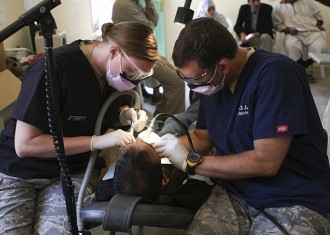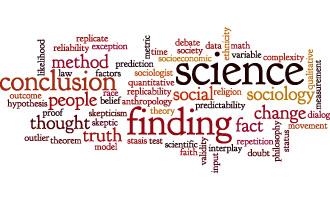
And now, an analogy.
A little over a week ago, Washington Post columnist E.J. Dionne was in town touting his new book Our Divided Heart: The Battle for the American Ideal in an Age of Discontent. He gave an interesting little promo about how the tension between our desire for individual liberty and freedom has constantly butted up against the quest for community throughout the history of American politics. But what was really memorable for me—what I have found myself thinking about mowing the lawn and driving to pick up my kids over the past few days—was the story he shared when I was introduced to him as a fellow sociologist. (Dionne has his doctorate in sociology from Oxford.)
The gist of the story was how an economist he knew once told him that sociology was “the dentistry of the social sciences.” This economist apparently meant the phrase as something of an insult. Dionne, however, took it as a compliment. Turns out, his father was a dentist, and Dionne is convinced of the nobility of the profession. Almost instantly, one of the other folks at the table quickly chimed in to quip that recent research has revealed the under-appreciated importance of oral health and hygiene to all manner of health and wellness (particularly in terms of heart health).
I don’t remember exactly where the conversation went from there, but I can say that that idea that sociology is to the social body as dentistry is to the physical body is a great image and metaphor. The parallels, moreover, are rich—poor public reputation, second-class professional status, working behind the scenes sweating the small stuff, trying to convince folks to pay attention to things they’d rather ignore, etc. I should also note that I went ahead and scheduled some long-overdue appointments in the big chair for my son and myself. You can never underestimate the power of regular flossing.

